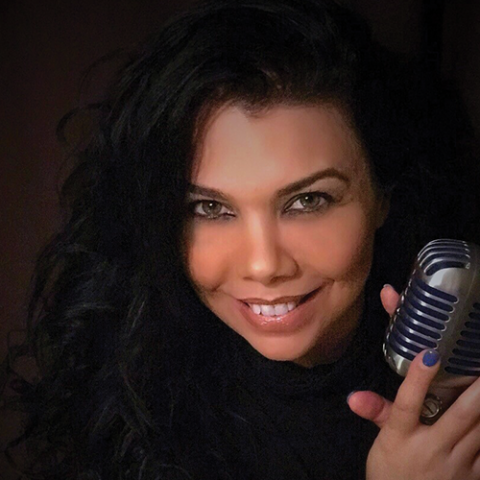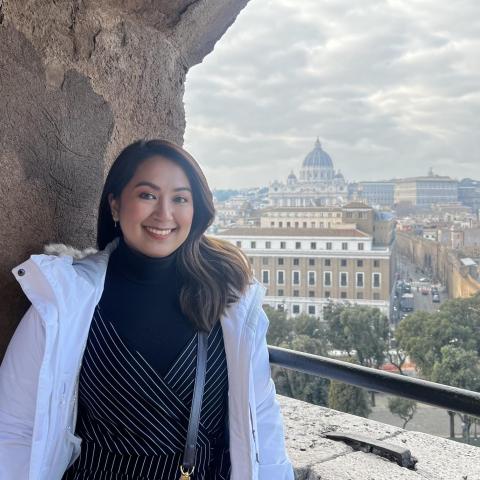Sophia Lazopoulou

In this conversation, edited for length, Lazopoulou talks about what brought her to Berklee, and what took her back home.
You’ve been performing since you were 17 and had developed a successful career in Greece. Why did you decide to leave it to come to Berklee in 2002?
I was just working nonstop as a performer. But I got tired of the Greek scene quite quickly. I was like, “It’s not for me, I just want jazz gigs.” I started just gigging around Greece and at hotels that had amazing [jazz] festivals. I also went to competitions and [in Bulgaria] I won a first-place award. And then I had my CD, which I wrote most of the songs on. Berklee came right after the first-place award, so I was pumped up with confidence; I’m like, “Okay, I’m ready.”
How would you describe your time at Berklee?
I always had a thing for the States and I sang American music, so it was just a normal thing for me to go to where the music came from. The moment I stepped foot into Berklee, I felt I belonged.
It just changed my life. It was amazing. I felt like a kid in a candy store. I could get all the music sheets I wanted, and I could get classes I never dreamed of. It felt like home to me.
After you graduated, you moved to New York. Tell me about your career there.
I started teaching at three conservatories. Everywhere I went, the moment I said I’m a Berklee College of Music alumna...the door was open. They appreciated the education, they appreciated the background... But also I found time to do my own thing, my jazz gigs, around restaurants and clubs. Ten years of this. I loved it.
Sounds like you had a rich life there. Why did you leave?
You know, the dream changed, because I had certain goals I wanted to conquer and I did. And then what? What happens after you do everything that’s on your list? I wanted to excel at Berklee; I did. I wanted to have my own jazz trio and work around New York; I did that. I wanted to be a teacher; I worked at three conservatories.
And then afterwards, 10 years later, you have other dreams. Like, for example, my niece was calling me from Greece—she was small at the time: “Auntie, I sang a song in the choir today and the teacher said I did really good!” And I was crying, because I’m teaching all these other students and not my own niece. So things started shifting inside of me, and I felt a pull toward home. I wanted to sing but do it in front of people I love, and be a teacher here, and teach my own niece. And, as it happens, I did teach her and she got a scholarship to go to Berklee!
You started working as a voice teacher at Nakas right after you came back. How was that transition?
It felt like home to me. It’s a connection to Berklee that I have and that I cherish... It’s a very supportive environment. You feel appreciated, that your work is being valued.
[Nakas] is the best school in Athens, for sure. It’s the best conservatory. It’s the biggest, it has the best teachers, it is the most supportive environment. I love it. It’s my home.



